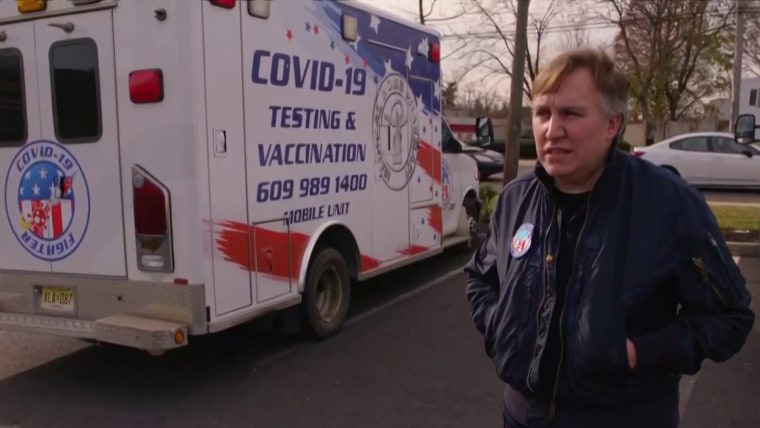The Centers for Disease Control and Prevention has reached out to tens of thousands of people who attended a recent anime convention in Manhattan as it works to understand the risks of the Covid-19 omicron variant.
CDC Director Dr. Rochelle Walensky said during a White House media briefing Tuesday that the agency is looking at the convention, which ran from Nov. 19-21 and was attended by a Minnesota man who later tested for omicron, as a way to collect data on the transmissibility of the variant.
Little is known about the omicron variant at the moment, with researchers around the world working to glean early details from its spread.
“Of the reported 53,000 people who attended that conference, more than 35,000 and counting have been contacted to encourage testing for all attendees,” Walensky said. “Data from this investigation will likely provide some of the earliest looks in this country on the transmissibility of the variant.”
Dr. Anthony Fauci, director of the National Institute of Allergy and Infectious Diseases, said more information is needed about transmissibility, disease severity and immunity evasion of omicron.
Preliminary data from South Africa suggests the variant is highly transmissible, and there are indications the variant can evade immunity after previous infection, he said Tuesday.
“We are not seeing a very severe profile of disease. In fact, it might be and I underscore — might — be less severe,” Fauci said, citing the ratio of hospitalizations to new cases. He cautioned that the data on severity is still in its earliest forms and involves a younger population. He estimated researchers would have a clearer picture over the course of the next few weeks.
Data from the anime convention could be particularly useful to understanding how the omicron variant will affect people in the United States.
“We’re relying right now on the data that have been coming out of other places, particularly South Africa so far,” said Janet Baseman, a professor in the Department of Epidemiology at the University of Washington. “This is a potentially rich data set.”
The infection’s dynamics could be quite different in South Africa, which has less vaccine coverage and a higher proportion of its population infected with HIV than in the U.S., Fauci said.
Context will be key as the CDC investigates, said Jennifer Nuzzo, an epidemiologist with the Johns Hopkins Bloomberg School of Public Health’s Center for Health Security.
“You can imagine the people who go to anime conferences are not reflective of everybody. They’re probably younger and healthier and able to travel. It will give us a limited view,” she said, adding that details such as how recently attendees had received vaccine shots and if they were adhering to mask guidelines could yield important insights.
“It is important to try to understand who spread it to who and what they were doing when it was spread and who they are,” Nuzzo said.
During the course of the pandemic, some of the largest leaps in understanding of the coronavirus and its variants have come from studies of large events where the disease spread widely, Baseman said.
“Look what we learned from Provincetown. Look what we learned from the conference in Boston really early in the pandemic,” she said.
Outbreak data from Provincetown earlier this year provided some evidence that the delta variant, first identified in India, was more transmissible than previous versions of the virus that causes Covid. It also gave researchers an indication the delta variant could infect those protected by the vaccine, though subsequent study has shown vaccinated people remain less likely to experience severe illness or to die.
The Boston conference referred to by Baseman — a corporate meeting held in February 2020 — became one of the most prominent examples of a superspreader event and helped explain the transmission pattern of the virus.
Nuzzo said findings from the anime convention could help public health officials understand ways to prevent omicron spread and create safer public spaces, particularly if researchers link a certain type of space or activity to higher rates of infection with omicron.
“Looking at these clusters of cases can tell us certain things about the virus itself. It can also help us make the environment safer,” she said.
Although omicron is expected to spread quickly and edge out other variants over time, it remains a sliver of the U.S. caseload now, which is still more than 99 percent delta, Walensky said.
The current seven-day average of cases across the nation is about 103,800 per day, she said. About 6,800 people are hospitalized a day with Covid and each day 1,100 people die, according to seven-day averages.
Source: | This article originally belongs to Nbcnews.com











